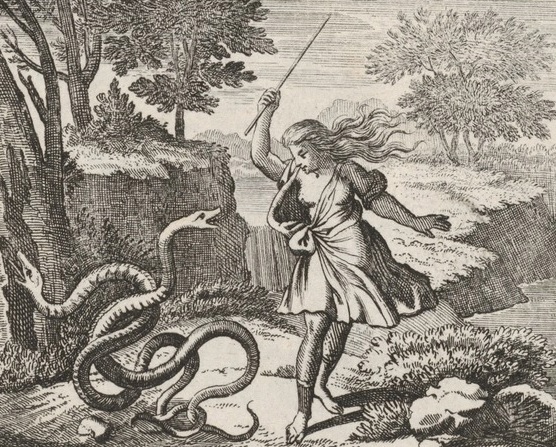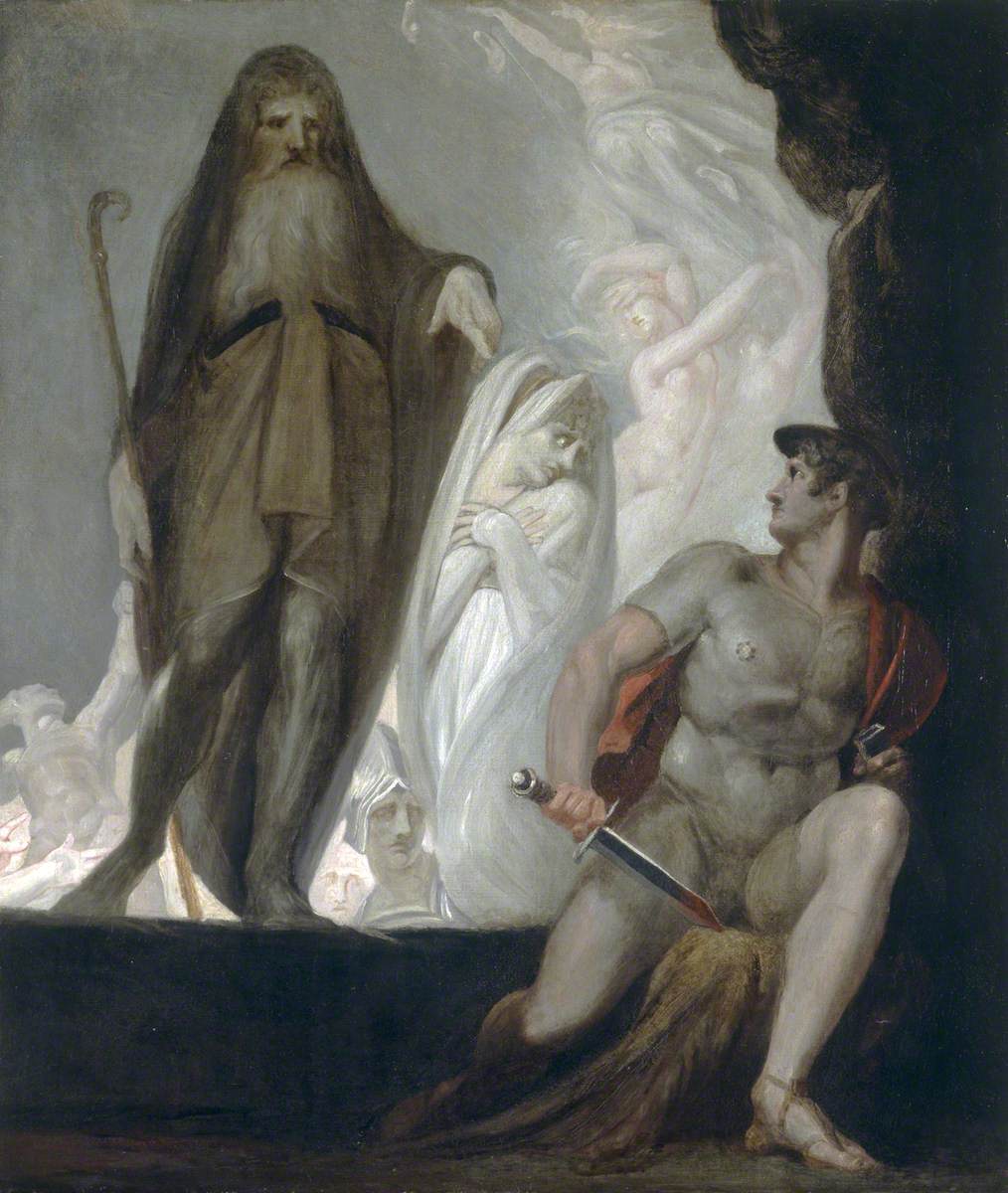Tiresias
The Blind Prophet and the Unique Individual Who Changed Gender in Greek Mythology

In Greek mythology, Tiresias was a very famous seer throughout ancient Greece, to whom many people traveled from afar to seek advice. He was blind, known for his longevity, and the fact that he had changed gender.
Tiresias was the son of Everes, a shepherd, and the nymph Chariclo. He is said to have had three daughters: Manto, Historis, and Daphne. He lived in the famous city of Thebes. Due to his semi-divine nature, Tiresias lived much longer than ordinary humans. Some sources mention that he lived for seven generations, about 150 years, while others state that he lived for nine generations, about 200 years.

There are various versions regarding the reason for Tiresias's blindness. One explanation says that Tiresias was such a skilled seer that he revealed the secrets of the gods to humans, and for this reason, the gods punished him with blindness. In another version, he was blinded when he accidentally touched the goddess Athena during her bath. There are different versions where his blindness resulted from the punishment by Athena or the Titan Cronus, who punished mortals who looked at gods without permission. Tiresias's mother, Chariclo, begged Athena to restore her son's vision, but Athena couldn't do so. Therefore, she gave him a different kind of vision, that of prophetic ability. She also gave him the ability to understand the language of birds, ensured him longevity, and told him that he would be able to prophesy the future even after his death when he would be in the world of the dead.

According to another myth about Tiresias, one day he encountered two snakes mating. He struck them with a stick, killing the female snake. At that moment, he transformed into a woman. Tiresias remained a woman for the next seven years, during which time he got married. At the end of the seven years, he again saw two snakes mating and struck them again with a stick. This time the male snake died, and thus Tiresias transformed back into a man.

Some time later, Zeus and Hera had an argument regarding the pleasures of love. Hera claimed that men experience more intense pleasures, which led Zeus to have many mistresses. On the other hand, Zeus argued that women enjoy it more. To resolve their dispute, they turned to Tiresias, who had lived as both a man and a woman. Tiresias stated that Zeus was right and that women experience nine or ten times more pleasure in love compared to men. Hera was so enraged that she blinded Tiresias, but Zeus rewarded him by giving him the ability to see the future.
Tiresias often helped and gave advice to the inhabitants of Thebes. One of his most well-known prophecies was to Oedipus, the king of Thebes, where he revealed that Oedipus had unknowingly killed his father and married his mother. Oedipus was shaken by the news and, filled with fear, became blind and left Thebes, leaving the city in despair and turmoil. The citizens suffered from a deadly plague, Oedipus's sons fought for the throne, and the city faced attacks from invaders.

Tiresias gave a prophecy that the plague would end when a man from Thebes volunteered to be sacrificed. Menoeceus, a cousin of Oedipus, offered himself as a sacrifice to fulfill the prophecy. Nevertheless, the plague continued to spread, and Tiresias advised the inhabitants to abandon the city. They arrived at a cold spring called Tilphusa or Tilphussa. According to tradition, Tiresias died after quenching his thirst from the waters of this spring.

In Homer's Odyssey, the account of Odysseus's return from Troy to Ithaca after the Trojan War mentions that the sorceress Circe urges Odysseus to visit Tiresias in the Underworld to learn about his future. In the Underworld, Tiresias reveals to Odysseus that he will find the island of Helios and that if he wishes to return quickly to his homeland, he must not harm the magical sheep and cattle grazing there, as they belong to the god Helios. Despite this, Odysseus's companions violate the directive and kill some of the animals to consume them. As Tiresias predicted, Odysseus suffered for ten whole years before reaching Ithaca alone and exhausted, having lost his ships and companions.
